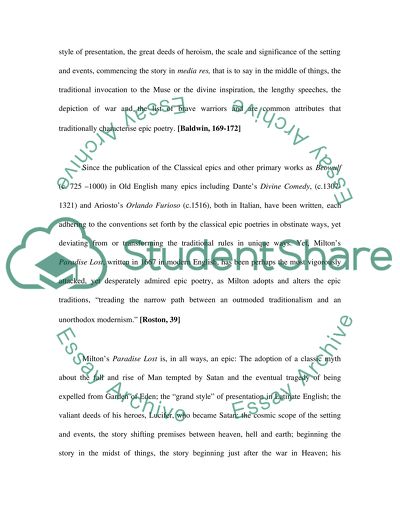Cite this document
(“Miltons Poetry in the Paradise Lost Essay Example | Topics and Well Written Essays - 2000 words”, n.d.)
Retrieved from https://studentshare.org/literature/1516212-paradise-lost
Retrieved from https://studentshare.org/literature/1516212-paradise-lost
(Miltons Poetry in the Paradise Lost Essay Example | Topics and Well Written Essays - 2000 Words)
https://studentshare.org/literature/1516212-paradise-lost.
https://studentshare.org/literature/1516212-paradise-lost.
“Miltons Poetry in the Paradise Lost Essay Example | Topics and Well Written Essays - 2000 Words”, n.d. https://studentshare.org/literature/1516212-paradise-lost.


